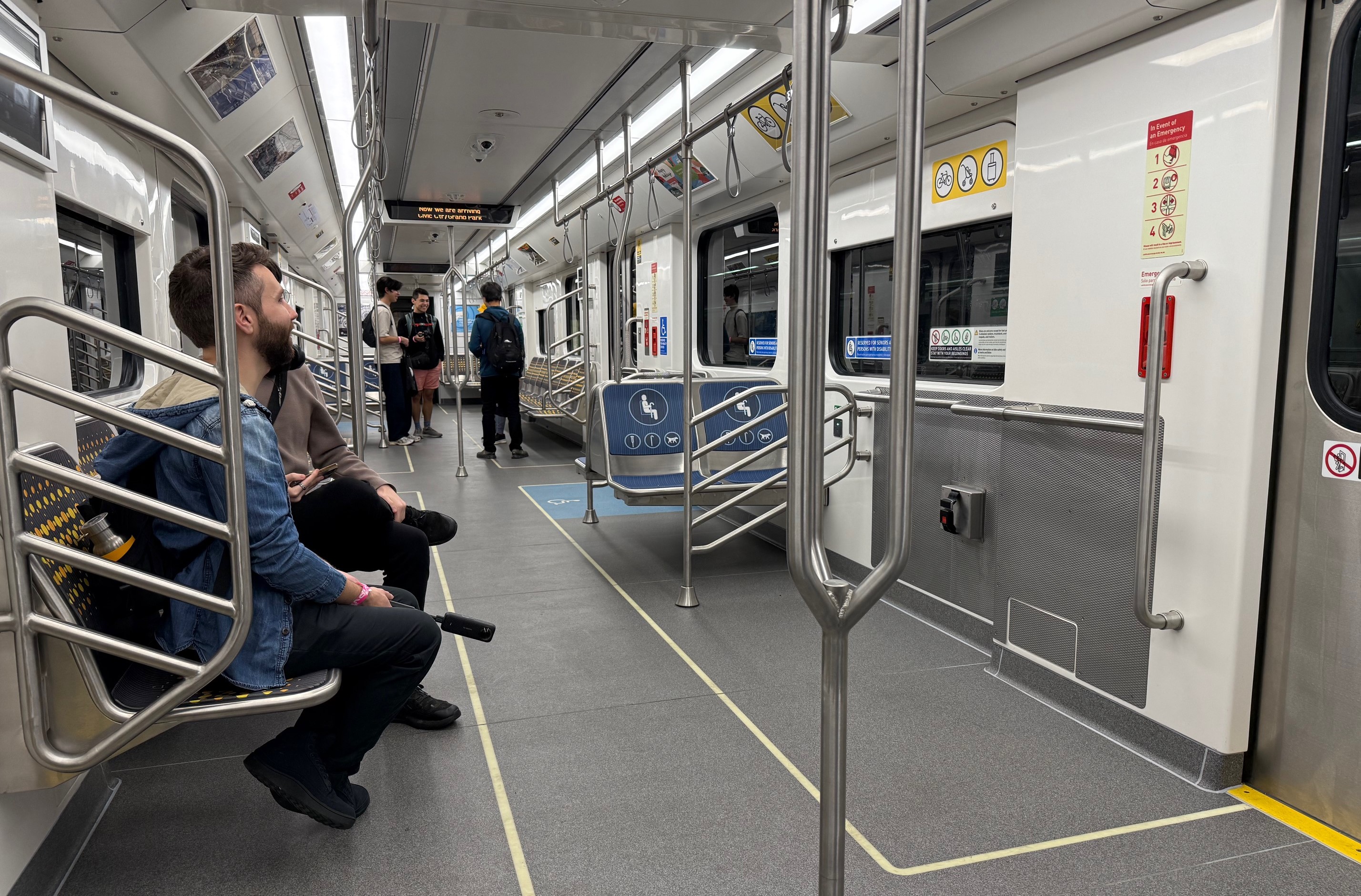
The federal government spends billions of dollars a year on tax subsidies that make traffic congestion worse, according to a first-of-its-kind analysis by TransitCenter and the Frontier Group. The culprit is the parking commuter tax benefit, which costs taxpayers $7.3 billion in foregone revenue each year, all while adding more than 800,000 cars to rush-hour traffic on the nation's roads each workday, the authors estimate.
The parking tax benefit allows people to claim up to $250 in parking expenses as tax-free income per month. It originated in the late 1970s, when, in the name of fairness, Congress prevented the IRS from taxing the free parking perks that employers gave their workers, without any thought to the effect on transportation. The new report shows that not only does the parking tax benefit have a disastrous effect on traffic, it's not even fair to car commuters -- amounting to a gigantic transfer to the most affluent drivers.
Most advocacy efforts centered on commuter tax subsidies attempt to raise the transit benefit -- currently capped at $130 per month. Last week, for instance, two members of Congress pledged to fight for an equal commuter benefit for transit and parking. TransitCenter and the Frontier Group argue that this is the bare minimum to strive for. The real impact lies in simply getting rid of the parking benefit.
The transit benefit, they write, is a "relatively inefficient tool for motivating changes in transportation behavior" and “only weakly counteracts the negative impact of the parking tax benefit” -- and should be thrown out, as it were, with the bathwater. If commuter benefits are retained, however, they recommend some key reforms: equalizing the transit benefit, and mandating that employers who offer parking benefits also provide the option of receiving a cash equivalent instead.
TransitCenter and Frontier Group estimate that while most people don’t change their commuting behavior based on the incentives created by these tax benefits, about 2 percent do -- and that 2 percent drives 4.6 billion additional miles per year.
To make matters worse, they do that extra driving at peak hours, in crowded downtown areas, worsening congestion that the country’s transportation policy is supposedly oriented toward fixing.

The subsidy disproportionately affects high-congestion areas because that’s where the parking benefit has value. Parking is abundant and free in most of America, and if you work in a suburban office park, the fair market value of the free parking your employer provides approaches zero. While parking is expensive to build and maintain, the benefit is based on the value of the good being given to the employee for free, not the amount the employer is paying to provide it.
“We estimate that about 37 percent of workplace parking has value,” said Tony Dutzik of the Frontier Group. "Most Americans, therefore, don’t benefit at all from the tax subsidy, and only a small percentage -- largely those in downtown areas -- get a significant benefit."
Wealthier workers are the prime beneficiaries of this benefit, as well, partly because downtown workers tend to earn more, and partly because of the nature of the income tax system: If you fall into a low tax bracket, the savings from tax-free earnings will be lower. The report calculates that a high-income earner in Philadelphia would save $990 a year through the benefit -- $250 a month of tax-free earnings at a 33 percent tax rate, times 12 months -- while a low-income worker at a 10 percent tax bracket would save $300. The transit subsidy mirrors this inequity.
“The commuter parking benefit clearly works contrary to important national transportation policy priorities, such as curbing congestion and reducing pollution,” the report says. Congress created the system without any substantive thought to what transportation purpose it serves (the lawmakers who established the parking tax exemption in the late 1970s saw themselves as defending working people from IRS overreach), and since the subsidies don’t come up in annual appropriations, lawmakers rarely revisit them.
The result: The country spends $200 billion a year on transportation -- much of it on road expansion justified as a congestion reduction tool -- while simultaneously encouraging people to make congestion worse by driving downtown during rush hour and parking for free.
A far better use for the billions in lost tax revenue would be to help plug the growing hole in the Highway Trust Fund, TransitCenter and the Frontier Group say.
As far back as 1998, a few lone voices were calling attention to the misguidedness of the policy. Senator Daniel Patrick Moynihan of New York decried the “hidden pro-parking bias” of the benefits that resulted in “far too many employees choosing to drive to work over riding transit and other modes.” History has proven him right.




